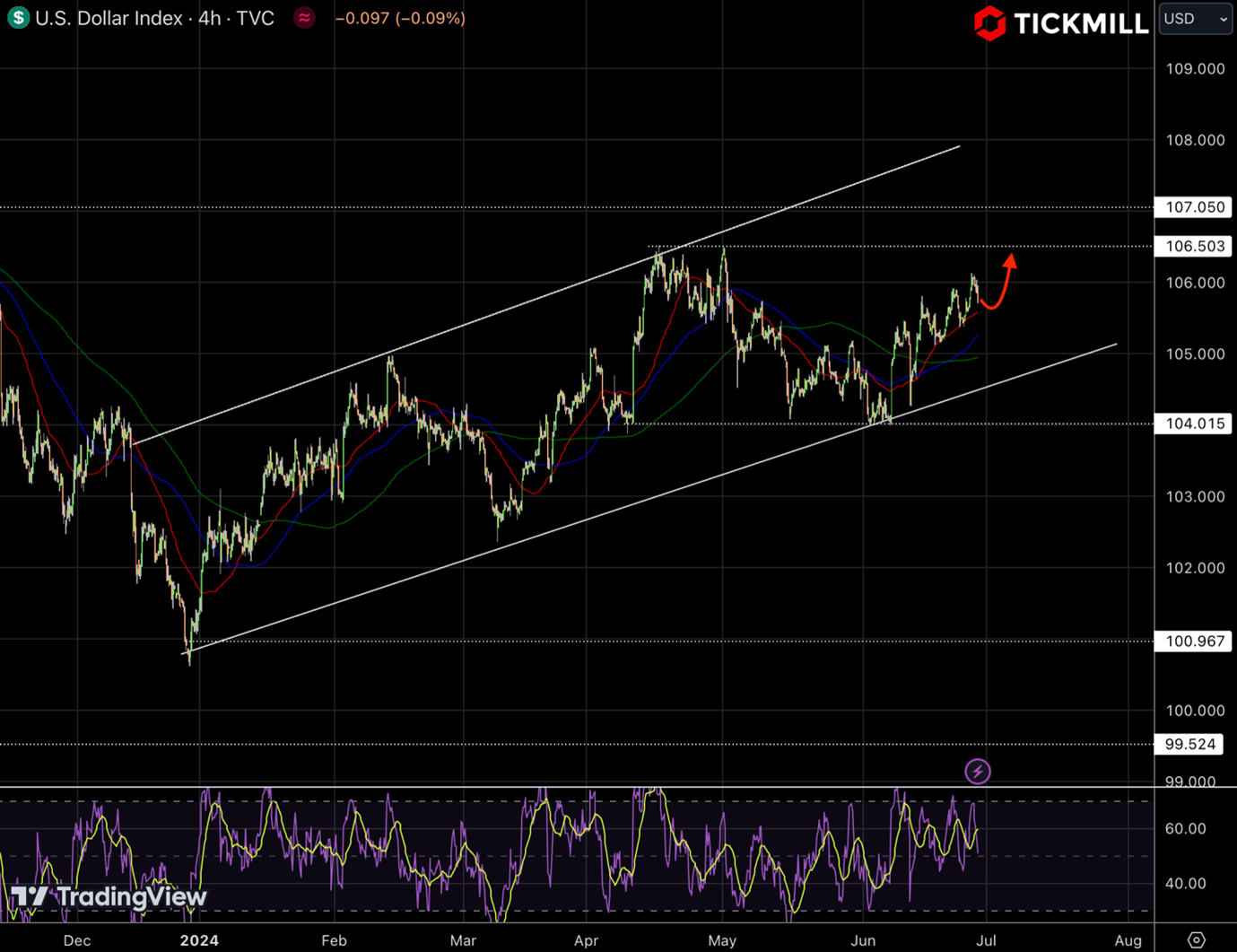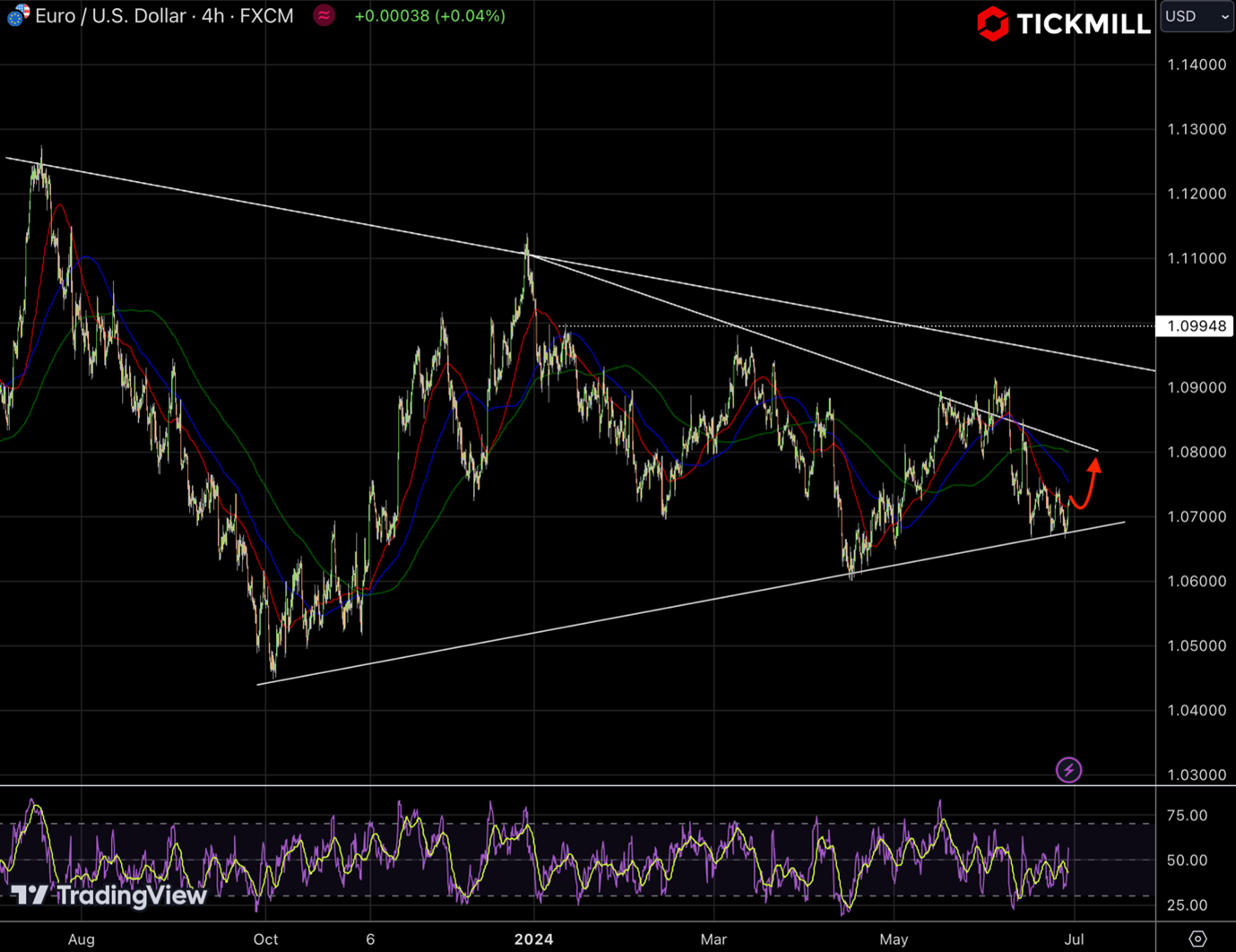Dollar Retreats but Near-Term Prospects Remain Positive

Today's trading session has been tumultuous, with the greenback experiencing a notable decline that erased gains from the previous week. This drop in the USD can be attributed to a mix of economic data, leading traders to selectively interpret elements to shape their market outlook.
An increase in Continuing Claims has raised concerns about the labor market's resilience. Although Initial Jobless Claims improved slightly, the rise in Continuing Claims from 1,821K to 1,839K suggests that more individuals are remaining unemployed longer than expected. The sharp increase in Wholesale Inventories indicates potential issues with demand and supply chain dynamics, further complicating the economic picture. The fall in Durable Goods orders, especially when excluding transportation, underscores a potential slowdown in business investment. Headline Durable Goods orders saw a modest 0.1% rise, but this was a sharp deceleration from the previous month's revised figure.
Despite today's USD weakness, the near-term outlook remains cautiously optimistic. Traders are closely watching the upcoming release of the US core PCE price index for May. As the Federal Reserve's preferred measure of inflation, core PCE data will be crucial in shaping monetary policy expectations:

Current forecasts suggest a deceleration in core PCE inflation to 0.1% month-on-month, down from 0.2% in April. Annually, inflation is projected to ease to 2.6% from 2.8%. Should these numbers confirm a slowing inflation trend, it could challenge the Fed's hawkish stance, potentially leading to a weaker USD and a retreat in the US Dollar Index towards 105.00 or lower.
Market sentiment is increasingly tilting towards a rate cut in September, despite recent hawkish rhetoric from Fed officials. Interest rate futures now indicate a 56% probability of a 25-basis-point cut, with a 37.5% chance of a rate pause.
The British Pound is bracing for heightened volatility as the United Kingdom approaches its parliamentary elections on July 4. Polls suggest a challenging path for Prime Minister Rishi Sunak’s Conservative Party, with the opposition Labour Party poised for potential gains:

On the economic front, the UK is grappling with the ramifications of the Bank of England's higher interest rates. Stubborn wage growth is a double-edged sword, empowering consumers with higher purchasing power but complicating the BoE's efforts to curb inflation. The recent S&P Global/CIPS Purchasing Managers’ Index data presents a mixed picture, with manufacturing activity picking up while the service sector faces unexpected slowdowns.
Disclaimer: The material provided is for information purposes only and should not be considered as investment advice. The views, information, or opinions expressed in the text belong solely to the author, and not to the author’s employer, organization, committee or other group or individual or company.
Past performance is not indicative of future results.
High Risk Warning: CFDs are complex instruments and come with a high risk of losing money rapidly due to leverage. 73% and 72% of retail investor accounts lose money when trading CFDs with Tickmill UK Ltd and Tickmill Europe Ltd respectively. You should consider whether you understand how CFDs work and whether you can afford to take the high risk of losing your money.
Futures and Options: Trading futures and options on margin carries a high degree of risk and may result in losses exceeding your initial investment. These products are not suitable for all investors. Ensure you fully understand the risks and take appropriate care to manage your risk.